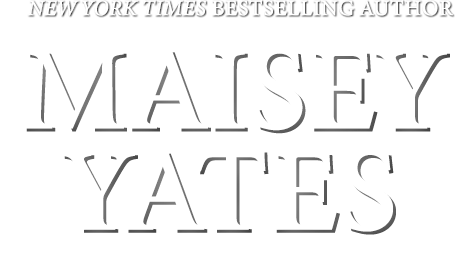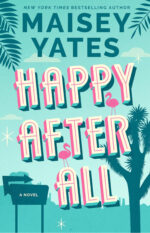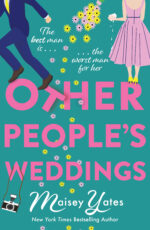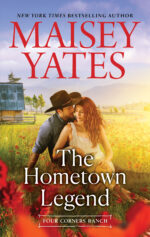Emotion is the Same
Okay, I confess and I share credit, because I’m janking this from a conversation I had with Jackie Ashenden recently about emotion and conflict in stories.
Jackie and I both write a couple very different books. She writes light, witty contemporaries for Entangled and dark, sensual romance for Samhain, while I write dark, broody books for Presents and funny, bantery contemporaries for Berkley.
I was complimenting her on how, whether I read her light OR dark stuff, I come away emotionally effected.
This led to us talking about the differences between our two books. In a Presents, I’m going to go all the way with the conflict. To the conflict wall. Spare few gothic novels have anything on the kind of thing you’ll find in my Harlequin books. A sheikh with scars and PTSD? Check. A virgin widower hero in love with a woman forbidden to him? Oh yeah. An infertile woman in love with a prince who needs an heir? Yep. I got that.
These conflicts, on the surface can seem larger than life. Or even, unrelatable, but really, they aren’t. Because at the heart of them is the same emotion we all feel in life.
My sheikh might be a sheikh, and yes, he’s been through more horror than I have. But the fear of inadequacy? Of failing? Of people judging him by his looks and rejecting him? Yeah, well, I know those fears. Or a Greek billionaire hero raised in a drug trafficking house, desperately afraid that if he ever loses his control and embraces his desire for power he’ll become as morally bankrupt as his father? Well, the circumstances might not be relatable, but certainly the need for control is.
And then there’s the lighter books. They’re lighter in tone, but in my opinion they still need to bring emotional heat. In my novella Unbuttoned, the heroine is a city councilwoman and the hero is an ex-rodeo rider-turned-rancher. Not sheikhs and princesses. The heroine doesn’t have scars. She didn’t lose her family in a terrorist attack or get sold into marriage by her father. She didn’t even get raised by a drug trafficker. But she is afraid of losing her control, of what she might become (weak, ineffective) if she lets down her guard and lets herself go.
She has a lot in common with the Greek billionaire above. And yet the stories have different content and tone. COMPLETELY different content and tone, in fact.
But I hope they’re both emotional. That there’s something relatable to them.
The fact is, whether it’s a historical, or a paranormal, a light contemporary or a dark one, the common thread, and the thing that will hook readers is emotion.
The conflict might be over the top, or it might be something totally real, but either one has to be grounded in emotion.
And because emotion is the common thread, I think that’s why, sometimes you can be just as impacted reading about a heroine in unrequited love with her older brother’s best friend as you can be by a sheikh with PTSD who lost his entire family in a terrorist attack.
At least you can be if emotion is at the heart of it.
One of the best tips I can give for conveying emotion is to describe the feeling in a pivotal moment, rather than just telling us ‘she was so sad’ tell me her throat aches, her eyes sting, her limbs feel like lead and she just wants to sleep. Show me so I feel it too. So that I remember how being sad FEELS and my heart aches along with hers.
Then there’s character. Characters who are well-rounded and believable, and who act on what they feel, or don’t act in spite of what they feel, characters we care about, are one of the other big secrets to making a reader feel emotion. That’s a whole big long blog post, but I’ll abbreviate.
Make sure their conflict informs their actions. That their emotions inform their actions. That all of it is present, woven throughout the manuscript. (there is nothing more frustrating than a character who acts contrary to who we’ve been told they are, or who does things just cos it advances the plot but makes no sense for them. But again, that’s a whole other post)
Romance is so much about the characters. And our characters are people. Even if they…shift into things. Because of that, they have those same human emotions the rest of us do, whether they’re a sheikh and the feelings are hard to get to, or a city councilwoman who needs to let her hair down.
No matter what sub genre you’re writing, give us that emotion. 🙂
Comments
5 Responses | TrackBack URL | Comments Feed








Awesome post!! And you said it better than I could. Emotion is at the heart of it because that’s what a romance is. It’s a book about emotion. You can’t have a romance without it. And yep, the emotion is the same whether it’s sheikhs or cowboys or dirty virgin heroes. Or princesses or software designers. It’s still exciting when they meet their potential love interest, incredible when they have their first kiss, sex still complicates things and it still hurts intensely in the black moment. Those basic feelings are the same the world over, no matter who you’re writing about. I guess that’s why they resonate with so many people huh? 🙂
Well-said. I think this applies to all genres–sci-fi and fantasy, MG and YA and adult, historical and contemporary… we relate to the characters through their experiences/relationships/emotions.
As usual, you’ve written another fab post 😀 Well said!
Right in Jackie, you said it well just now. 🙂
Brooke, I totally agree with you. It’s emotion that engages the reader and makes us pick up a book we can’t put down!
Thank you, Joanne!
Great post Maisey! Gets straight to the heart as always. Caroline x